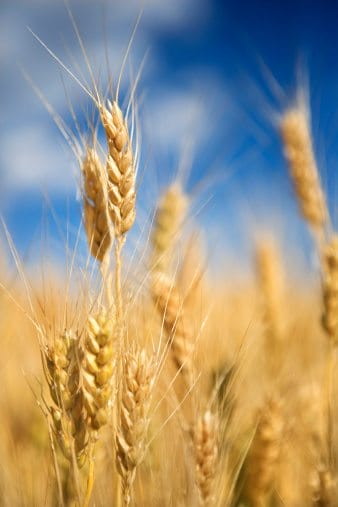 Photo: Getty
Photo: Getty The Transportation Security Administration (TSA) confirms to Allergic Living that heightened security measures for carry-on items, which were being rolled out at across most U.S. airports, can include food screening.
While the focus has been on the fact that any electronics larger than a cell phone must go into security bins, TSA agents may additionally ask you to put carry-on foods into the bins.
Putting food and electronic devices in separate bins helps TSA officers to get a clearer X-ray image of the items.
The food measure, which affects allergic travelers since they must carry-on their own safe foods and avoid cross-contact, was drawn to Allergic Living’s attention by a travel agent. On her Facebook page, Jennifer Hardy, who serves families traveling to Disney World, also warned that the TSA is “checking all food (candy, snacks, fruits)” at Orlando International Airport.”
For food allergy families, who often don’t have the option of buying safe meals or snacks on the plane, this raises the issue of keeping foods safe from other inadvertent cross-contact. This becomes a concern in the communal bins or when agents want to examine food.
A woman from Cabot, Arkansas related her experience on Hardy’s page: “When I went to Orlando from Memphis, I was pulled over for additional screening and was told it was [because] I had lots of snacks in my bag. They swabbed every single snack.” Hardy says that a lot of families are traveling in October to attend Disney’s event Mickey’s Not-So-Scary Halloween Party, and they are carrying many snacks and candies.
What’s An Allergic Family To Do at Security?
Allergic Living reached out to Sari Koshetz, spokesperson for the TSA’s southeast region, to ask what families with food allergies traveling with their own foods can do to make the process less worrisome and avoid cross-contact.
First, Koshetz says passengers are “encouraged, but not required to” put their food in a separate bin “in order to facilitate the screening process.”
She suggests the following:
- Package your allergy-safe food in your carry-on luggage in a clear, tightly sealed Ziploc bag.
- If you’re worried about cross-contact and your bag is pulled for additional screening, politely ask the officer to put on clean gloves before opening your bag.
- As for liquids, the TSA has a machine that can check a bottle for explosives without opening it. “We use this to test liquids that are larger than the 3.4 ounce limit, which are needed for medical reasons,” Koshetz says. The liquid items should be pointed out to the officer before the item goes into the X-ray machine.
As an extra pre-caution, Allergic Living recommends asking your physician for a note before traveling that confirms your allergies, and the fact that you need to carry safe foods (as well as epinephrine auto-injectors).
The stronger measures also do not affect those enrolled in the TSA Pre-check program. So enrolling in that program is another consideration.
Concerns Remain
The new measures concern Christina McIntosh, the Florida mother of a 17-year-old with several food allergies. Her daughter Emmi is planning her first school trip without a parent in December, and will be traveling with a duffle bag of pre-made safe meals in containers.
Her daughter is allergic to dairy, nuts, wheat, oats, shellfish, and some vegetables. “For her, the slightest bit of something falling in there, it could jeopardize her,” she says. “I’m not mad at TSA. I’m trying to figure out how we are going to cope with it.” Her fear is that if an agent opens her containers and hasn’t changed gloves, “she would have to toss all her food out.”
Read more:
Fair Treatment in the Skies: Are Airlines Abusing Allergy Privacy?
Comparing The Airlines’ Allergy Policies





